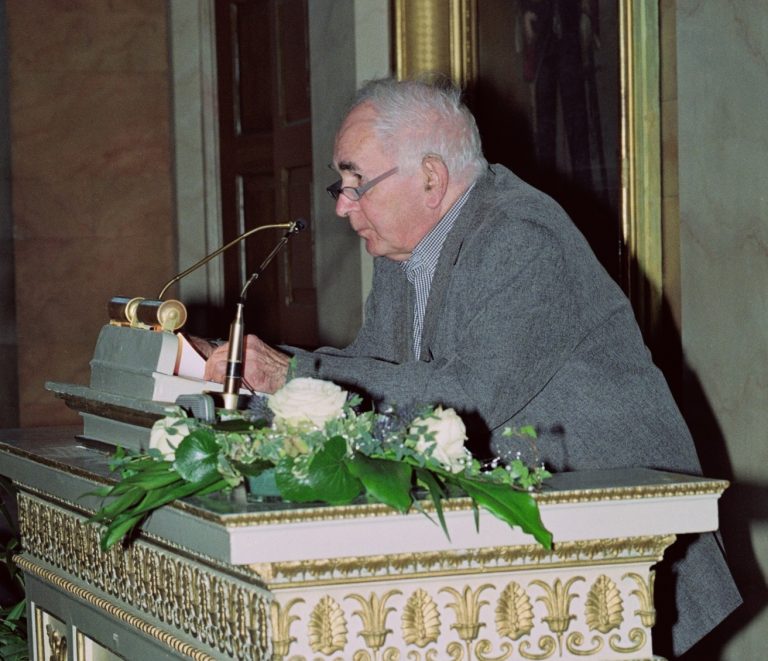Ernst Tugendhat was always a proud supporter of his hometown and his family’s legacy in Brno. Photo credit: Society for Threatened Peoples.
Brno, March 17 (BD) – On Monday, 13 March, the German philosopher and humanist professor Ernst Tugendhat, who was always a proud supporter of his hometown and his family’s legacy in Brno, died at the age of 93.
Tugendhat was born in 1930 in Brno into a wealthy and influential Jewish family that worked for the benefit of the city for several generations. His parents Grete and Fritz Tugendhat commissioned the construction of Villa Tugendhat. The construction of this well-known villa started in 1928 and was completed in 1930 by the architects Ludwig Mies van der Rohe and Lilly Reich. The villa, which can be visited by the public, became an icon of modernism. Famous for its revolutionary use of space and industrial building materials, the building was added to the UNESCO World Heritage List in 2001.
Ernst Tugendhat attended a Czech elementary school, but at the age of nine he and his family were forced to flee from the Nazi occupation to Switzerland and then to Venezuela. He worked as a philosopher at the universities of Tűbingen, Heidelberg, Starnberg and Berlin, Michigan and Santiago de Chile.
Ernst Tugendhat is comparable in his importance, originality and influence to leading philosophers such as Lyotard, Derrida and Levinas. His main areas of interest were linguistic analysis, the problem of self-confidence, and ethics. Several of his lectures on the problems of ethics were translated into Czech.
Professor Tugendhat also devoted himself to activities in the field of human rights, and thus continued his family traditions with his activities in the humanitarian field. In 2001, he became an honorary citizen of the city of Brno.








